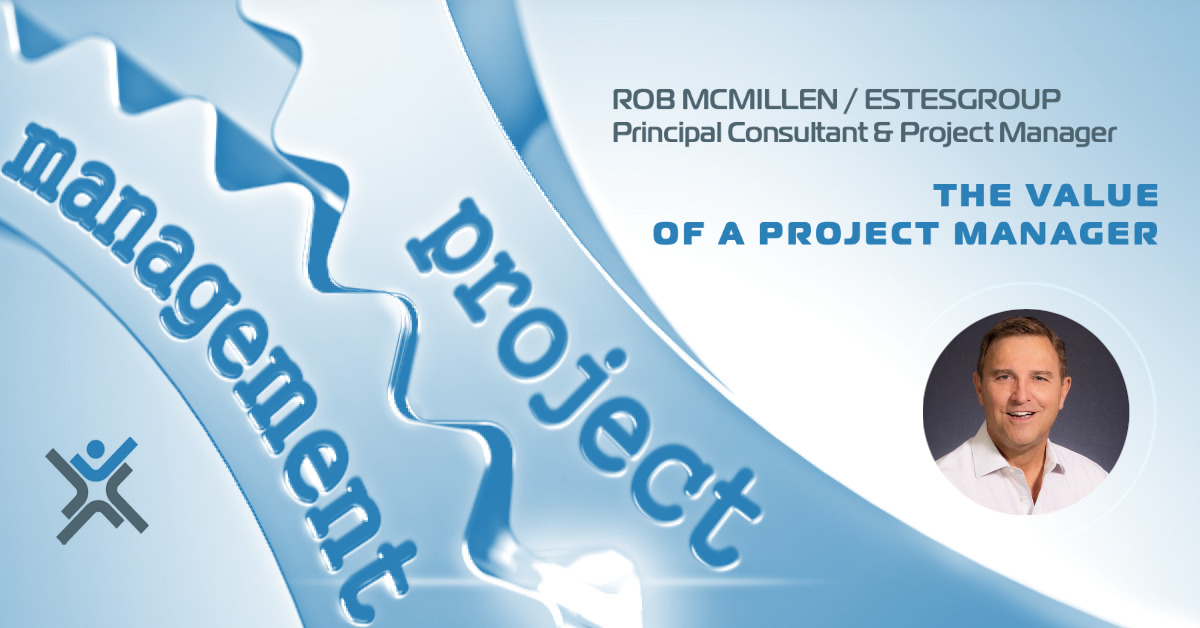Project Management & the Future of Your Business
In the next 5 years almost 88 million people around the world will be working in Project Management. More importantly, project-oriented activity will have reached $20 trillion in value. With this many projects and this much value in play, the success and value of projects is a high priority. Yet many leaders don’t appreciate the value of using projects and see them as the exception to the normal business process. Why is this?
At a high-level there are two types of efforts a company undertakes:
1) Operations:
Running the organization
2) Projects:
Changing the organization

The first type of effort is day-to-day. It includes sales, customer service, finance, manufacturing, and IT. It focuses on efficiency, productivity, and speed. And that focus is mostly short-term. For success in operations the organization depends on command and control to get results.
The second type of effort is more about the future of the organization. It is about adaptation, innovation, transformation, and longer-term value. Its focus is medium to long-term. It is successful when it is led by entrepreneurship and collaboration.
Both efforts require teamwork, but one focuses on continually tuning the current environment and the other focuses on adapting to the future. And while Operations keeps the organization afloat, it is not able to alone ensure the survival of the organization. The reason is that change is permanent for most industries because of competition, government rules and disruption. More efficient Operations help but cannot create the cultural and operational changes necessary to stay relevant in the market. That’s why anticipating, managing, and driving strategic change has become a top priority.
So, if strategic Projects are essential how does an organization ensure that they are successful?
It’s no secret that less than 40% of most projects are successful. And everyone has a story of a failed project, right?
To avoid these failures, there are many things that can be done. One of the most important is to develop Project Management skills in the organization. And those skills need to be practiced by both Executive sponsors and the Project Manager(s). It is not enough to put someone in charge of a project, they need to be skilled and supported to ensure success. Then the organization gets the real benefits of project management.
And what are those benefits? I would offer that they always include these eight items:
Clear Ownership for Project Success
Team members of the project are working towards a common goal, but they focus primarily on their individual responsibilities. The Project Manager is always considering the overall project, the resources, the upcoming tasks, the costs, the risks, communication needs and schedule. They look above the day-to-day activities to see what is happening across the project and the future. This provides clear ownership and a chain of command for the organization.
Project Organizing and Planning
The Project Manager works with the team to create and track schedules and budgets for the project. They also provide clear direction and expectations for the project team, steering committee, and end-user involvement. The organization knows that someone is continually reviewing progress of the project so that issues can be addressed earlier and more efficiently.
Project Accountability
The project team makes commitments, and the project manager holds them accountable for those commitments usually on a weekly basis. The team knows they have to provide updates to the project manager on their progress. This protects the organization from delays, extra costs and missed steps.
Project Scope / Budget / Schedule / Resource Management
Every project has a risk of either expanding or contracting the scope of the effort which can lead to missed objectives. It also has a budget and a schedule that should be monitored continuously. The Project Manager guards the scope of the project and ensures that objectives are met within the parameters of time, cost and resources. They know the best methods for tracking each of these and reducing the risks entailed. The organization is better protected from wasted efforts and missed objectives which can cost thousands of dollars in rework when a Project Manager is at the helm.
Project Rigor
Projects are complex and expensive. A Project Manager has invested (and continues to invest) time in learning and applying best practices to each project. They bring prior project experience and skills that are not found in other members of the project team or sponsors. They know how to manage project risk, scope creep, and organizational politics. They understand project measurements like Earned Value, Cost Performance Index, Schedule Performance Index, Planned Value and the variances to track. Because of this, organizations reduce the risk of project failure when they have a competent and focused Project Manager involved.
Team Building
While accomplishing the objectives of the project is a priority, that happens best when the project team is working well together. Building relationships of trust and negotiating conflicts is part of the job of the Project Manager. They know the stress incurred during projects and help ensure a healthy working environment that engages and values everyone. Organizations improve the quality of the results when the Project Manager is building and supporting the team responsible for delivering the project.
Communications
Most projects have multiple stakeholders, a sponsor, a customer, internal/external resources, a steering committee, and vendors that must coordinate to accomplish the project objectives. Ensuring that these participants are informed and kept up to date is a key role of the Project Manager. They use email, phone calls, status meetings, Zoom-type meetings, text messages and one-on-one meetings to ensure that everyone is informed to perform. There is no one approach to communication and organizations benefit from the focused communication that a Project Manager brings to the table.
Change Management
Completing a project is only part of the success of a project. The other is that the end-customer needs to be prepared for the changes that the project brings. The ability to educate and prepare for change is more important than most realize. Many projects are successful on one hand yet fail because the organization never adopts the solution. A skilled Project Manager brings a change management strategy and rigor to the effort. They are working with the customers of the project to ensure that the solution is accepted, that customers are trained to use it and that there is ongoing support for the solution. Organizations that have a robust Change Management process led by the Project Manager increase the impact of the project on organizational performance.

About the Author
Rob McMillen is a Senior Project Manager with EstesGroup. He has worked in the manufacturing industry for over 30 years supporting multiple implementations of new ERP systems and leading projects. Because his mom was an English teacher, he grew up with a love of writing. Combined with his working experience, he has written articles for LinkedIn and User Groups, and has published numerous blog posts. He is also a co-author of a book on technology and working collaboratively. He currently lives in the DFW area.
Are you in need of a project manager?
Do you need help with planning your project or ensuring that your plans are successful? Having a good PM (project manager) is a win-win for your organization. EstesGroup consultants have the project management experience to keep you on time and within budget. Sure, you could post project management positions and hire to boost your internal resources. But think about this: our services have been trusted for nearly two decades by thousands upon thousands of people, and time is of the essence when approaching even the most simple project life cycle. Projects require both hard and soft technical skills, and even though each case is unique, our proven project management methodology will bring you the human talent necessary to optimize your business, saving you precious time. EstesGroup project management focuses on the people on your team. Let’s talk now to get your project good people, good methodology, and a good future.

